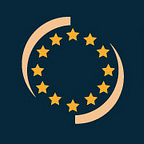Car Import Tips: Importing Cars from Asia Into Africa
In recent years, Africa has emerged as a major market for used cars. At present, there are just 44 cars per 1000 people in the continent. However, this ratio is increasing on a consistent basis and is likely to improve significantly over the next few years. It is estimated that there will be more than 90 million registered vehicles in Africa by the year 2030. Countries such as Nigeria have a population in excess of 140 million, making them attractive markets for used cars. However, importers are often unaware of the regulations and the financial instruments that could help them in importing cars from Asia to Africa. This blog will assess the regulations and discuss the methods to simplify the import process.
The most important market that caters to Africa’s increasing demand for used vehicles is Asia. Within Asia, Japan has emerged as a significant market that exports used cars to Africa. Multiple trade agreements have already been signed between Asian and African countries. There are two major reasons why Africans prefer to import used cars from Japan. Firstly, the international policies adopted by Japan do not interfere in African markets. Secondly, Japanese cars are already popular in these markets, allowing for the easy sourcing and installation of spare parts and equipment. This has led to a situation where African consumers are increasingly importing used cars from Japan.
Used cars companies operating in Africa need to complete a series of steps before they can import cars from Asia. The first step towards importing a car from Asia to Africa includes obtaining a permit from the International Trade Administration Commission (ITAC). In order to obtain such a permit, the importer must be a resident of Africa. He/she also needs to provide a valid proof of address. Thereafter, the importer also needs to obtain a letter of authority from the South African Bureau of Standards. The letter of authority should also match the standards of the car with the Road Traffic Act. Further, every importer needs to pay the applicable fees for the import. These fees include import duty, customs duty, and value-added tax. Once all these steps have been completed, an importer is free to import the car into Africa.
The best policy for African importers is to tie-up with a third-party that could simplify the import process. Such third-parties can save the importers from the hassles of documentation, while also facilitating a smooth transaction with overseas partners. Furthermore, there are various websites that offer customised services to car importers from Africa. These companies can help you in finalising your documents and comparing the quotes from different exporters. Such third parties are also capable of assisting you in terms of drafting the key terms and conditions of your trade. Finally, it is important to seek professional advice because these companies are specialists in what they do. Their assistance could go a long way in facilitating your importing activities.
In order to make the process simpler, importers can avail the services of international financial institutions that provide trade assistance as well as offering useful financial instruments. Importers of cars can take the help of such institutions in order to streamline their import activities. One such institution is Euro Exim Bank. The bank allows businesses to import and export products without any hassles.
Euro Exim Bank offers financial instruments such as Letters of Credit (LCs) and Bank Guarantees that are aimed at simplifying the import process. The bank offers multiple types of LCs and other trade assistance instruments that could help car importers in Africa. More information about the bank and its key offerings is available here.
